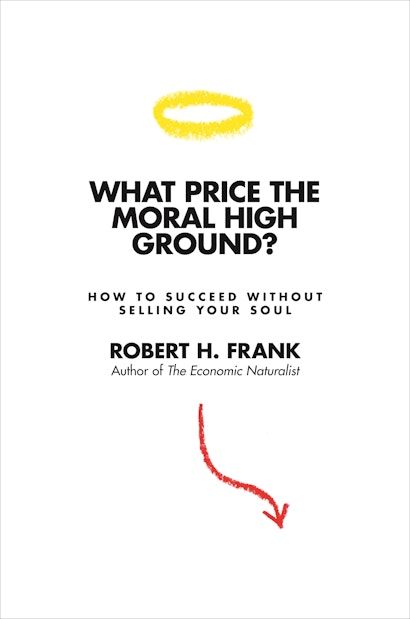What Price the Moral High Ground?: How to Succeed without Selling Your Soul


Paperback
- Price:
- $18.95/£14.99
- ISBN:
- Published:
- Apr 4, 2010
- Copyright:
- 2003
- Pages:
- 224
- Size:
- 5.5 x 8.5 in.
- 32 line illus. 10 tables.
- Main_subject:
- Economics & Finance
ebook
Financial disasters—and stories of the greedy bankers who precipitated them—seem to underscore the idea that self-interest will always trump concerns for the greater good. Indeed, this idea is supported by the prevailing theories in both economics and evolutionary biology. But is it valid?
In What Price the Moral High Ground?, economist and social critic Robert Frank challenges the notion that doing well is accomplished only at the expense of doing good. Frank explores exciting new work in economics, psychology, and biology to argue that honest individuals often succeed, even in highly competitive environments, because their commitment to principle makes them more attractive as trading partners.
Drawing on research he has conducted and published over the past decade, Frank challenges the familiar homo economicus stereotype by describing how people create bonds that sustain cooperation in one-shot prisoner’s dilemmas. He goes on to describe how people often choose modestly paid positions in the public and nonprofit sectors over comparable, higher-paying jobs in the for-profit sector; how studying economics appears to inhibit cooperation; how social norms often deter opportunistic behavior; how a given charitable organization manages to appeal to donors with seemingly incompatible motives; how concerns about status and fairness affect salaries in organizations; and how socially responsible firms often prosper despite the higher costs associated with their business practices.
Frank’s arguments have important implications for the conduct of leaders in private as well as public life. Tossing aside the model of the self-interested homo economicus, Frank provides a tool for understanding how to better structure organizations, public policies, and even our own lives.
